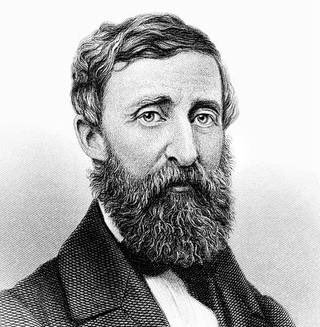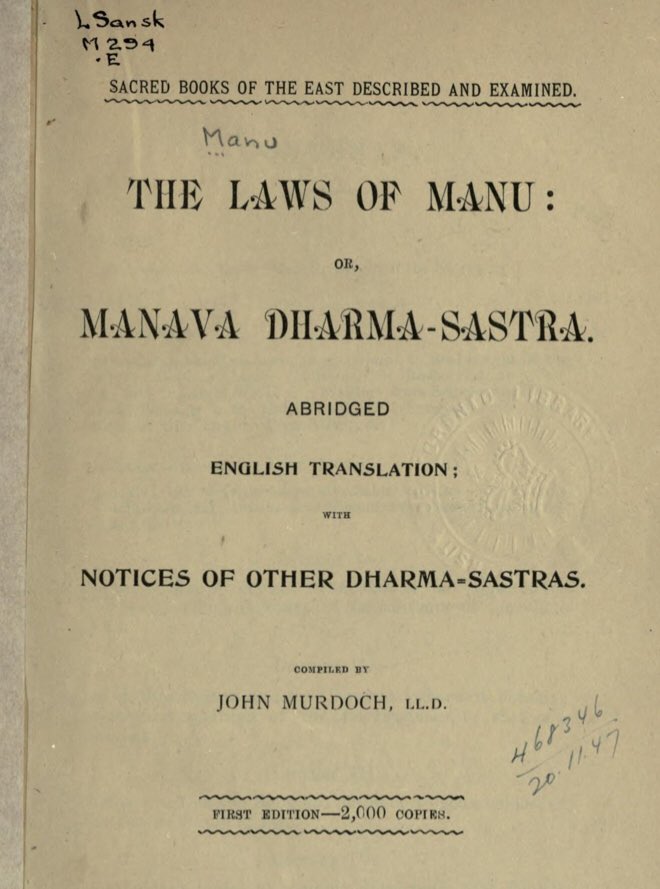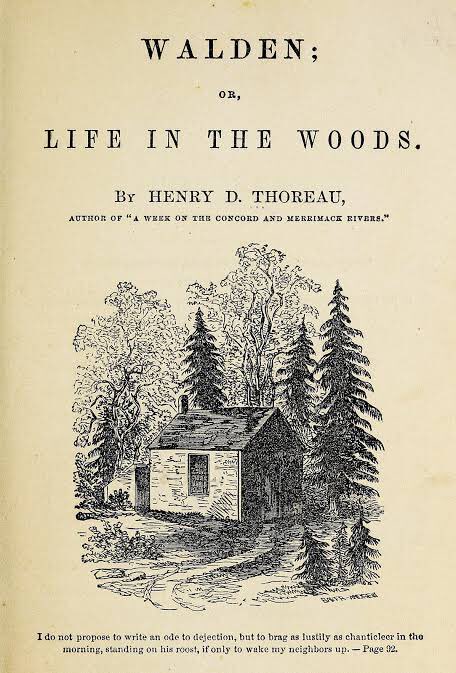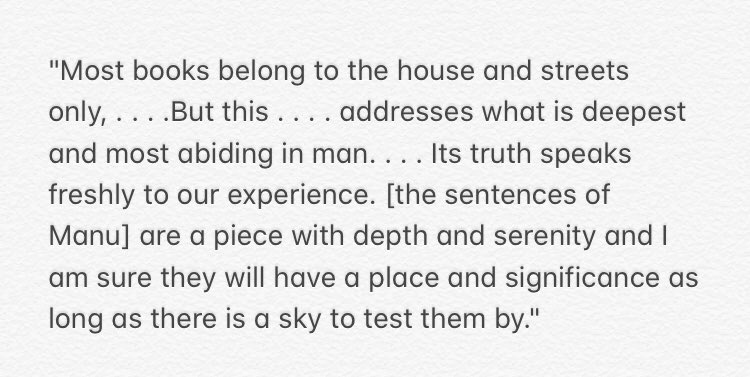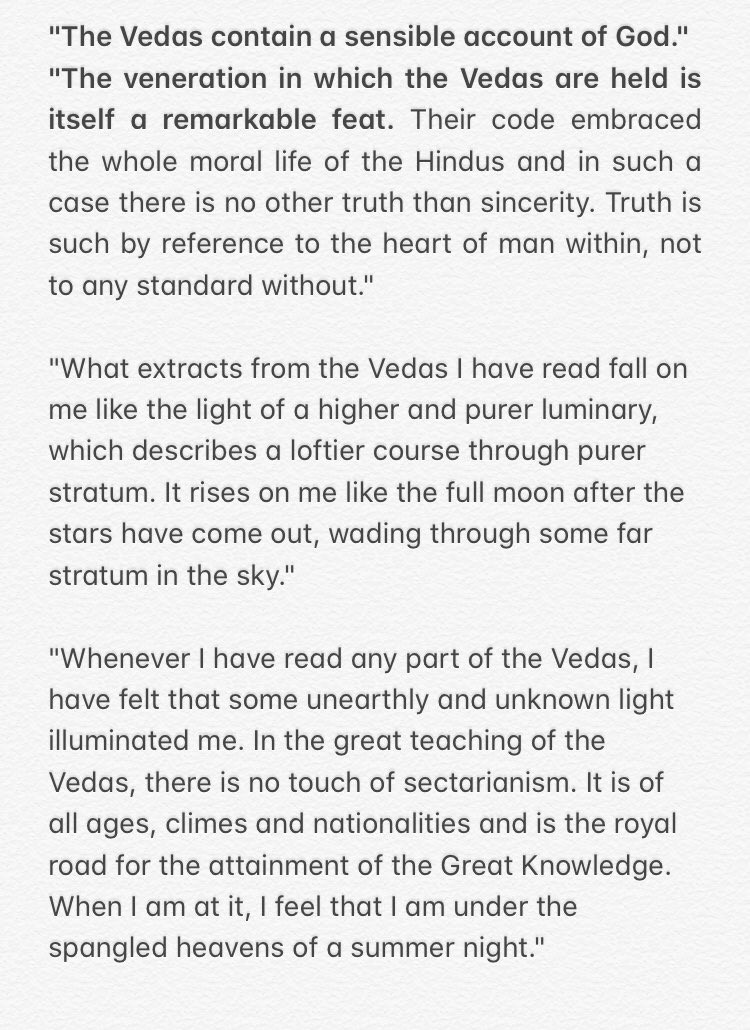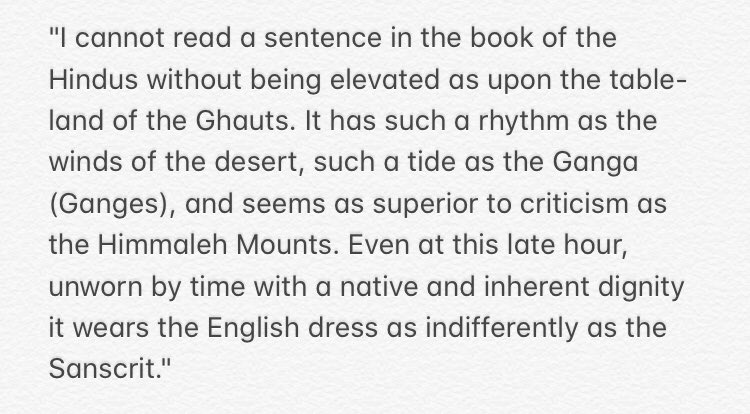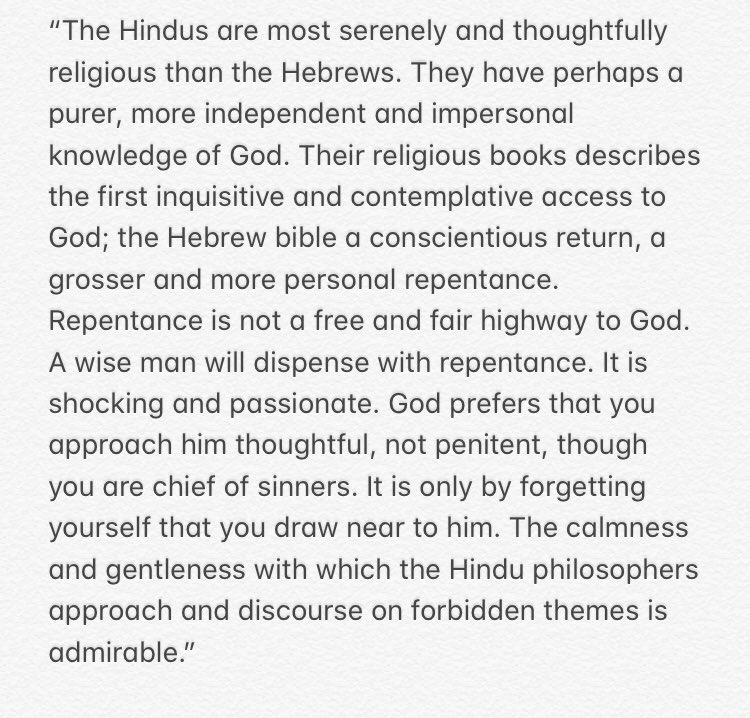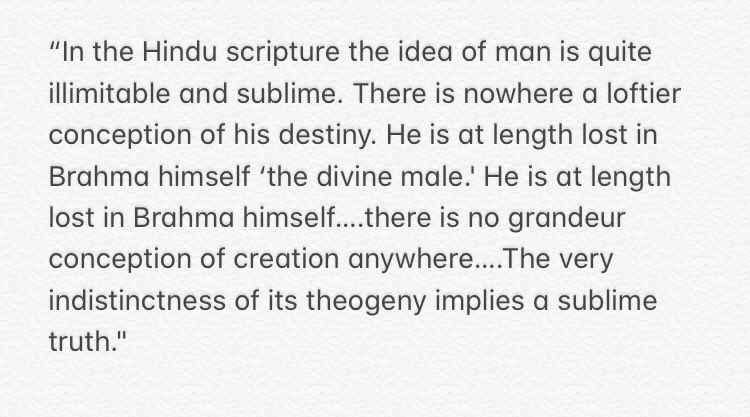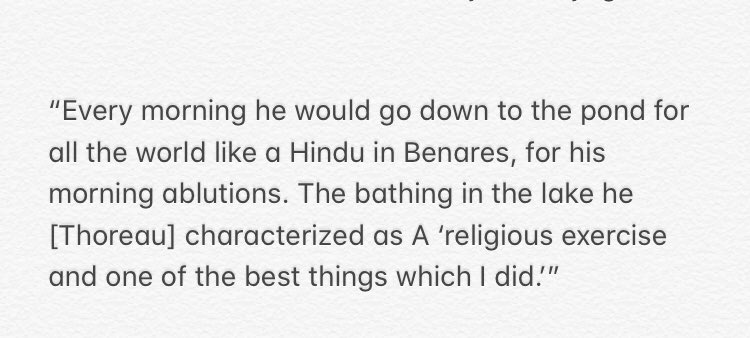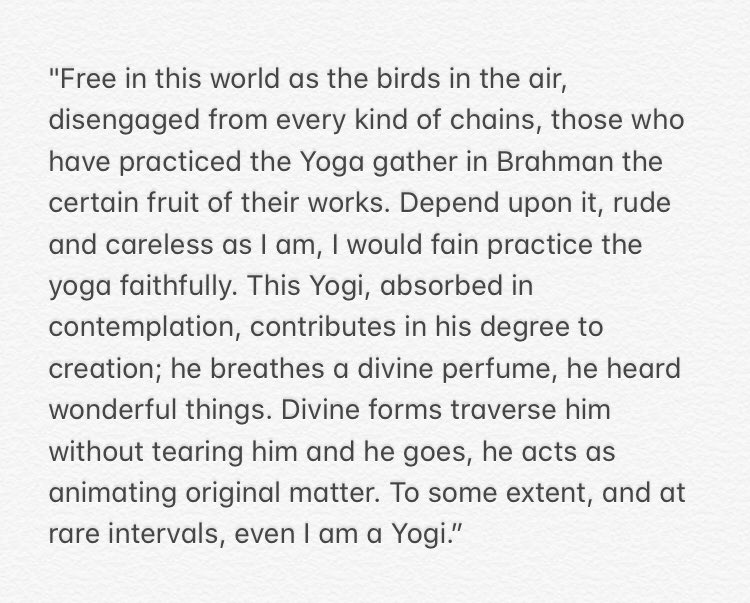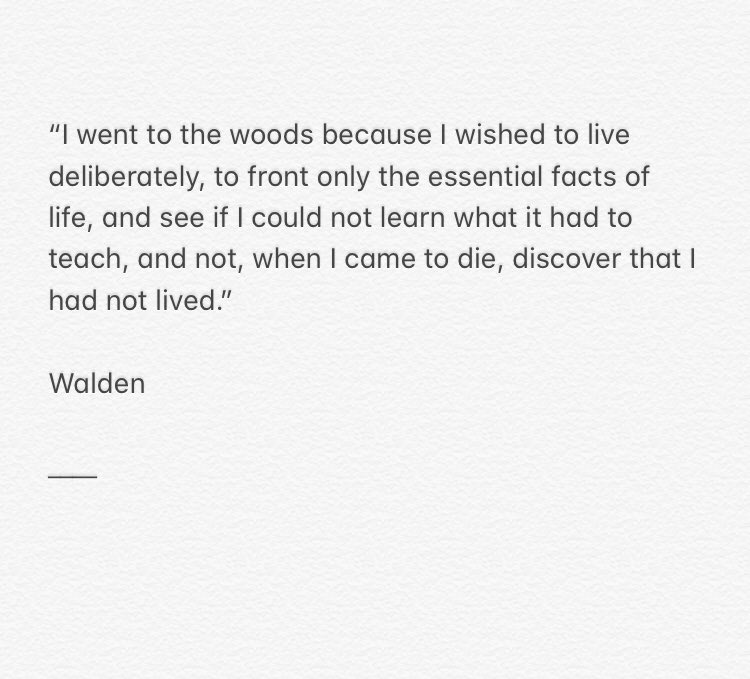Thread: Henry David Thoreau and his journey into Hindu philosophy, while the west was gripped by Transcendentalism
Thoreau's interest in India and its philosophical texts began when he found the Laws of Manu in Emerson’s library.
Thoreau's interest in India and its philosophical texts began when he found the Laws of Manu in Emerson’s library.
Thoreau wrote in his journal that: “comes to me with such a volume of sound as if I had swept unobstructed over the plains of Hindostan, and when my eye rests on yonder birches; or the sun in the water or the shadows on the trees ~ it seems to signify the laws of them all.”
Thoreau had a large collection of Indian books for which he built a special bookcase out of driftwood. He said that indian "philosophy and poesy seem to me superior to, if not transcending greatly, all others".
When Thoreau was living in Emerson’s home, he borrowed several books from his mentor. He was particularly attracted by the yogic elements contained in the Manu Smriti, and embarked on his Walden experiment - in the spirit of Indian asceticism, he moved to the cabin he’d built
next to Walden Pond in 1845, where a 27 year old Thoreau lived in complete seclusion for a little over two years. The Bhagavad Gita was one of the texts that Thoreau carried with him to Walden Pond, which became his constant companion.
Thoreau’s ‘Walden; or, Life in the Woods’, is an assemblage of sustained thinking about life in a rural setting, deeply felt psychological insights amidst everyday life and some sharp criticisms of the society around him, inspired by hindu vedantic principles.
Thoreau wrote,
"In the morning I bathe my intellect in the stupendous and cosmogonal philosophy of the Bhagavat Geeta, since whose composition years of the gods have elapsed, and in comparison with which our modern world and its literature seem puny and trivial;
"In the morning I bathe my intellect in the stupendous and cosmogonal philosophy of the Bhagavat Geeta, since whose composition years of the gods have elapsed, and in comparison with which our modern world and its literature seem puny and trivial;
and I doubt if that philosophy is not to be referred to a previous state of existence, so remote is its sublimity from our conceptions.”
Thoreau paid ardent homage to the Gita and the philosophy of India in A Week on the Concord and Merrimack Rivers:
Thoreau paid ardent homage to the Gita and the philosophy of India in A Week on the Concord and Merrimack Rivers:
Thoreau’s conceptualization of God was that of the Gita - the idea that God is not only omnipresent and omnipotent but also immanent and transcendent.
“A good Hindu can “looketh on all things alike, beholdeth the supreme soul in all things, and all things in the supreme soul.”
“A good Hindu can “looketh on all things alike, beholdeth the supreme soul in all things, and all things in the supreme soul.”
Thoreau’s journals often extolled the “Great Knowledge” that the Vedas provided, which was based on sublimity, purity, fairness, and universal vision, as evidenced in the following excerpts:
The following passage demonstrates Thoreau’s disenchantment with Hebraism and his love for Hinduism: In 1853, he wrote:
Thoreau described Christianity as "radical" because of its "pure morality" in contrast to Hinduism's "pure intellectuality"
The Christian and Hindu concept of man, Thoreau thought, were diametrically opposed to each other:
The Christian and Hindu concept of man, Thoreau thought, were diametrically opposed to each other:
the former sees man as a born sinner whereas the latter takes him to be potentially divine. The lofty concept of man embodied in Hinduism appealed to Thoreau.
Praising such concept he wrote:
Praising such concept he wrote:
Frank Macshane’s essay on Thoreau in the New England Quarterly argues that Thoreau’s seclusion by Walden Pond to contemplate and live like a hermit had “sacramental” significance, which Thoreau followed in the style of a yogi:
Thoreau led a life of a ‘sanyasi’ for slightly more than two years, living alone, subsisting on a simple diet without meat, eschewing alcohol and tobacco always and following the path of Dharma.
He stood up against injustices wherever he found it - he was thrown in jail when he refused to pay a one-dollar poll tax to register his protest against slavery and the Mexican War.
Macshane depicted Thoreau as a jnana-yogi due to his intellectual powers and as a karma-yogi due to his renunciation of a materialistic life in favor of a spiritually grounded one. Thoreau’s simple diet, chastity, meditation, and a solitary life reflected the life of a yogi.
Thoreau’s Walden teaches us that if we were to tap into the nature that surrounds us, we are likely to find something sublime and beautiful. Walden is as relevant today as it was when it was first published in 1854.
Thoreau’s words and deeds still continue to inspire millions around the world who seek solutions to critical environmental and political challenges.
sources
India in the American Mind – By B. G. Gokhale
The Writings of Henry D. Thoreau – Walden 1989.
Princeton Univ. Press.
https://www.thestatesman.com/opinion/rishi-and-the-yogiii-1502675288.html
A Week on the Concord and Merrimack Rivers – By Henry David Thoreau
India in the American Mind – By B. G. Gokhale
The Writings of Henry D. Thoreau – Walden 1989.
Princeton Univ. Press.
https://www.thestatesman.com/opinion/rishi-and-the-yogiii-1502675288.html
A Week on the Concord and Merrimack Rivers – By Henry David Thoreau
Macshane, Frank. “Walden and Yoga.” The New England Quarterly, vol. 37, no. 3, 1964, pp. 322–342. JSTOR, http://jstor.org/stable/364034

 Read on Twitter
Read on Twitter